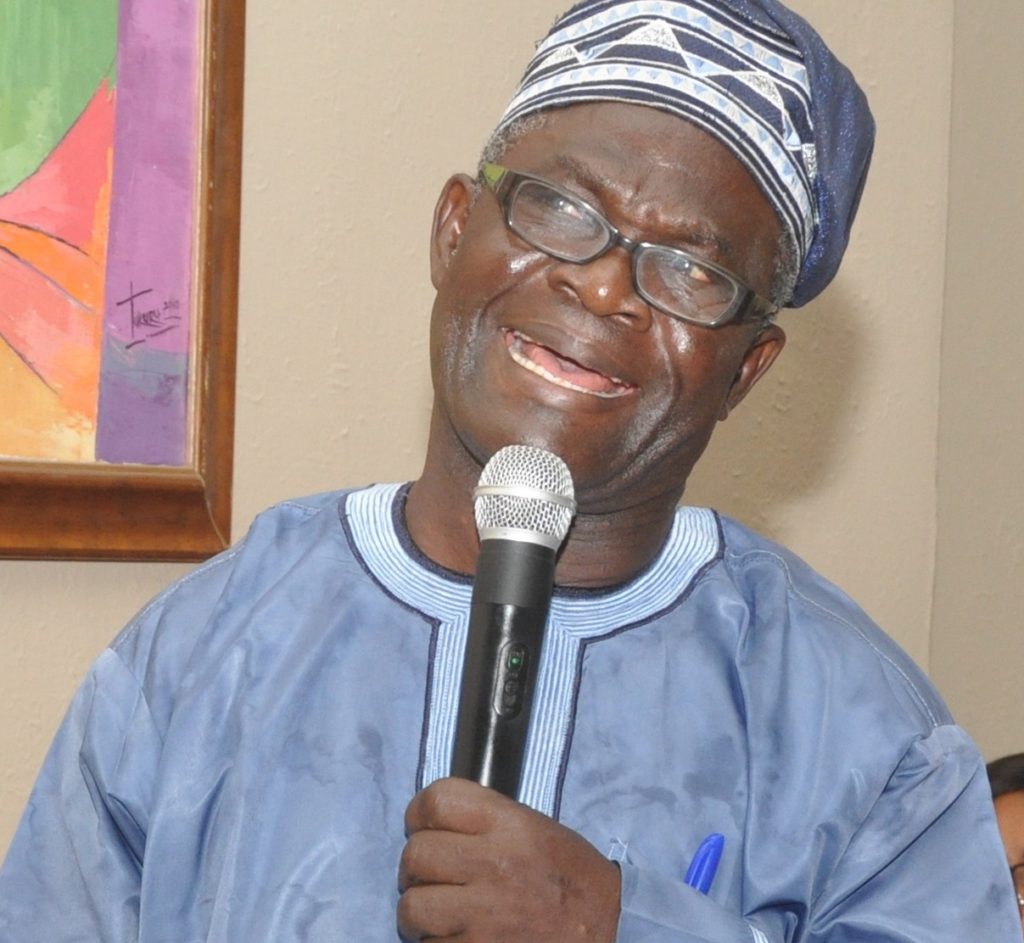
Ten years after Lagos State introduced the controversial wharf landing fee, the Chairman, Association of Maritime Truck Owners (AMATO), Chief Remi Ogungbemi, has decried the method officials of the collecting agency deploy in collecting the fee, saying it is impeding the free flow of traffic in Apapa.
The Wharf Landing Fees law, No.5 of 2009, imposed between 1,000 and 3, 000 on cargoes exiting from Lagos ports into the local government areas of the State with the sole purpose of raising revenue to repair the damages heavy trucks inflict on the Lagos ports environment.
Speaking in a chat with SHIPS & PORTS, Ogungbemi lamented that for over 10 years, the collection officials have not changed their mode of collection, which he described as primitive.
He urged the agency to adopt a modern method of collection, advising its management to engage the services of shipping companies to collect the fees before the cargoes leave the port instead of having its staff standing by the road side flagging down trucks for the purpose of collection.
He also maintained that it is not the responsibility of truck owners to pay the fee but the importers who are the owners of the goods.
“The wharf landing fee issue has been on for several years. I know it has been legislated by the Lagos State House of Assembly and agents have been appointed that are collecting the money but my worry and concern is the condition by which the people who are collecting the money are doing it. At times, they collect the money under duress, sometimes; they carry stick, which is not the best.
“That is why I am advising that they should design modern method of collecting such money by going to the shipping companies that owns the goods to know the number or the tonnage of the goods they receive in their terminal. They can use it to get to know the amount of money they will pay.
“The best bet is that they should be collecting if from the port that is through either shipping companies or terminal operators. Standing on the road, demanding for this money is impeding traffic and is not the best way of doing things.
“They should use the manifest brought by a ship. From the manifest, they will know the number of containers or the tonnage of the goods that the ship brought. Let them collect the money direct from the importer of the goods not the driver. Standing on the road and asking for this money creates a lot of confusion and friction. At times, I don’t think there can be proper accountability by standing on the way and demanding for this money. It is a primitive way of doing things. I think we should use technology to see how they can collect the money,” he said.
When contacted, Chairman of the Wharf Landing Fees Collecting Authority, Joe Igbokwe, said the agency has adopted different methods to make payment easy but the truck owners have refused to embrace it.
He said effort by the agency to also engage the Nigerian Port Authority (NPA) to help with the issuance of debit notes to keep its officials off the road has not yielded the desired result.
“The truck owners wouldn’t want to pay even when the money is given to their drivers. We have had several meetings with them to see if they can do it collectively or come to our office and buy our ticket and give to their drivers when they are going, but they will not come. We operate a system where people do not want to obey the law.
“We have made effort to work with the port managers to see if we can pick it from the system, it didn’t work. We even went to the Managing Director to see if they can create debit note for us, so that it can keep our boys away from the road, but they didn’t want to help us. There is nothing we could do because it is a law of the State. An agency of the Federal Government cannot say the law of Lagos State is illegal that will be outrageous.
“The law setting up the Wharf Landing fee Authority is that a 40-feet container will pay N1,000 and a 20-feet is to pay N500 that is what the law says. What is taken by the road side from occasional importers is minimal, not even up to 10 percent of the total collection from companies like Dangote, Flour Mills and the rest who paid directly through the banks,” he said.